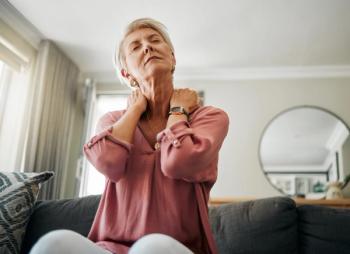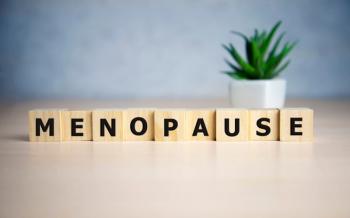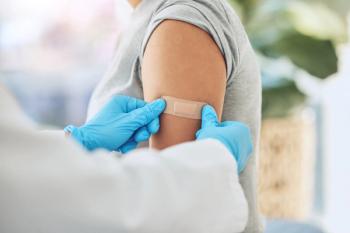
Menopause
Latest News
Latest Videos

CME Content
More News

A recent study showcased at the 2024 ACOG Annual Clinical & Scientific Meeting unveils elinzanetant's efficacy in alleviating vasomotor symptoms, sleep disturbances, and enhancing menopause-related quality of life in postmenopausal women.

Review some of the top stories from the Contemporary OB/GYN website over the last week, and catch up on anything you may have missed.

A recent study revealed an association between premature menopause and increased risks of musculoskeletal pain and sarcopenia, emphasizing the potential benefits of hormone therapy in mitigating long-term effects.

A recent large-scale study challenged age-related concerns, suggesting hormone therapy may offer safety and even benefits for menopausal women aged over 65 years, aligning with The Menopause Society's 2022 Position Statement.

Review some of the top stories from the Contemporary OB/GYN website over the last week, and catch up on anything you may have missed.

Learn how to prepare for your menopause healthcare visit effectively and make the most out of your time with health care professionals, as advised by experts selected by The Menopause Society.

Review some of the top stories from the Contemporary OB/GYN website over the last week, and catch up on anything you may have missed.

Review some of the top stories from the Contemporary OB/GYN website over the last week, and catch up on anything you may have missed.

Bayer's OASIS 3 trial affirmsed the safety and efficacy of elinzanetant in reducing moderate to severe vasomotor symptoms, bolstering confidence in its potential as a non-hormonal solution for menopause-related issues.

Delve into the connection between nighttime vasomotor symptoms and Alzheimer's disease risk in women, shedding light on potential modifiable factors impacting cognitive health.

Discover how the early transition to menopause can affect women's work ability and workforce participation, shedding light on crucial considerations for both healthcare providers and employers.

Discover how neighborhood disadvantage affects menopause onset and implications for women's health, as revealed by recent research published in Menopause, the journal of The Menopause Society.

A recent study revealed that adherence to plant-based diets among postmenopausal women does not correlate with hip fracture risk, challenging concerns about the impact of such diets on bone health.

A recent investigation sheds light on the efficacy of hormone therapy in alleviating depressive symptoms associated with menopause, revealing potential benefits for women undergoing natural menopause.

A recent study found that COVID-19 vaccination is not associated with an increase in incident postmenopausal bleeding diagnoses, providing reassurance to providers and patients concerned about bleeding caused by the vaccine.

Bayer has initiated the phase 2 trial NIRVANA to evaluate elinzanetant's potential in treating sleep disturbances in menopausal women, addressing a prevalent yet unmet need in women's health.

Elinzanetant demonstrated positive safety and efficacy data in managing menopausal vasomotor symptoms, highlighting its potential as a treatment for improving women's quality of life during menopause.

JoAnn Vensko Pinkerton, MD, discusses how fezolinetant provides relief for postmenopausal women experiencing hot flashes and night sweats.

A recent study in Menopause, the journal of The Menopause Society, suggests that a longer reproductive life span and later age at menopause may be associated with a reduced risk of low handgrip strength in postmenopausal women.

In a recent study, therapeutic touch and music independently improved sleep quality in perimenopausal and postmenopausal women.

This lecture, presented by Holly J. Pederson, MD, at The Menopause Society 2023 Annual Meeting, looked at combined oral contraceptives in BRCA carriers and other high-risk patients, and hormone therapy in postmenopausal gene carriers as well as other high-risk women.

In a recent study, women with worse mental and gastrointestinal health had stronger menopausal symptoms.

James A Simon, MD, discusses the link between hot flashes and poor sleep quality, and how clinicians can help their patients manage sleep disorders.

In a recent study, increased hair cortisol levels were effective at measuring worsened cognitive health in perimenopausal women.

In a recent study, hot flashes were indicated to be an underlying risk factor for cardiovascular disease.


















